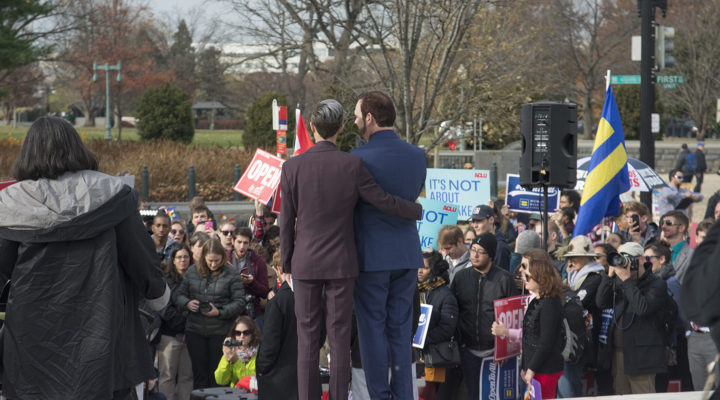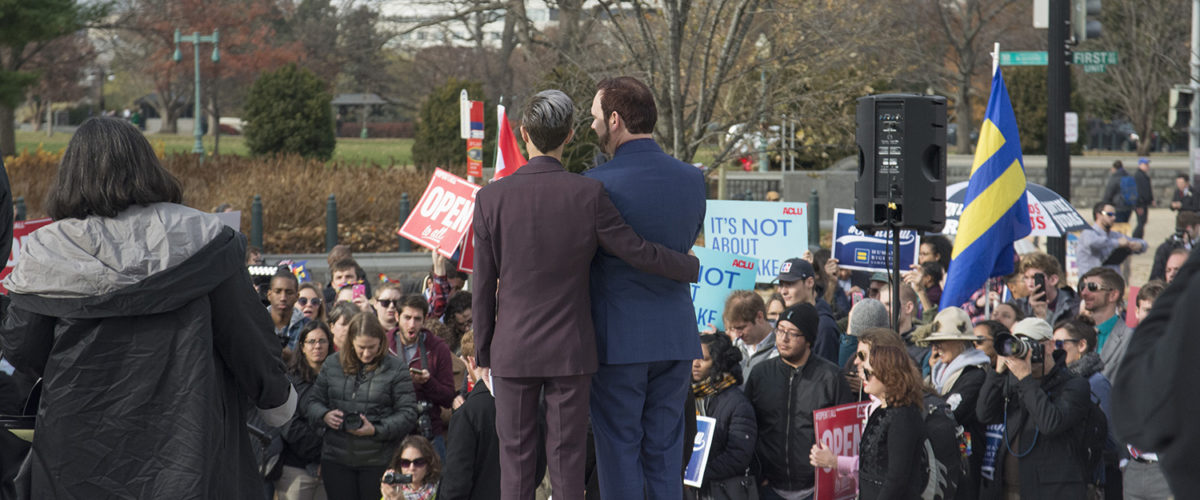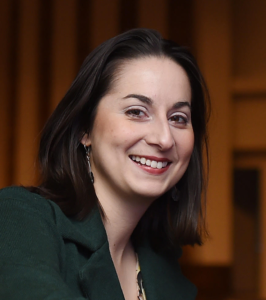It’s been a rough week for the nation’s LGBTQ Christians thanks to Masterpiece Cakeshop v. Colorado Civil Rights Commission.
The case, featuring a Denver-area cake maker who cited his faith to refuse service to a same-sex couple, ended up before the U.S. Supreme Court on Tuesday and generated wall-to-wall news coverage. Social media exploded and religious groups weighed in from across the theological and political spectrum.
It was too much for some gay and lesbian Christians.
“For LGBT people, this is a scary moment,” said Brandan Robertson, a gay rights activist and a former Southern Baptist youth minister.
It’s also an infuriating moment.
“The media has made so much about cake, but this has nothing to do with cake,” said Robertson, pastor of a Disciples of Christ congregation in San Diego.
What it does have to do with, he and others say, is whether businesses can legally cite religious convictions to discriminate against people because of their sexual orientation.
It all started in July 2012, when two gay men visited Jack Phillips’s Masterpiece Cakeshop in Lakewood, Colo., to order a cake for their wedding reception. Phillips refused, saying his faith prohibits him from serving same-sex couples.
Phillips was found to be in violation of Colorado law denying service to people based on sexual orientation, religion or race. That decision was upheld by Colorado’s Court of Appeals and the state’s high court refused to review the decision. Phillips then appealed to the nation’s highest court.
While the case and its opposing arguments are nothing new, seeing the issue suddenly erupt across traditional and social media this week has been especially painful, Robertson said. Essentially, his civil rights and those of others are at stake.
“What does that do the psyche of LGBT people? It’s incredibly harmful.”
The case is also a painful reminder of the tension between being gay and being Christian, said Maria Swearingen, co-senior pastor at Calvary Baptist Church in Washington.
Swearingen said she encountered a headline this week declaring that LGBTQ advocates have again been pitted against Christians in the Masterpiece Cakeshop case.
“Once again, I felt my heart break and my anger swell,” Swearingen told Baptist News Global.
Such headlines and the wider “debate” serve to erase LGBTQ Americans and mask the discrimination against them.
And they falsely report a gay-versus-Christian controversy.
“As someone who is both queer and Christian, I’m not at odds with myself no matter how many people choose to emaciate their imaginations by believing that I am,” Swearingen said.
“I follow the way of Jesus. And I, and countless queer Christians like me, refuse to be bifurcated by people claiming a version of Christ I hardly recognize, much less follow.”
Robertson said he has fielded those questions and comments himself.
“People will ask me ‘how in the world can you be a pastor and openly gay?’”
The Masterpiece Cakeshop case together with the growing influence of conservative Christianity in political life have compelled Robertson to change how he identifies his Christianity.
“Since Donald Trump was elected, I will not identify as an evangelical anymore because I have to spend so much time saying what I am not before I can get to what is good about the term,” he said.
And it has nothing to do with bakery goods, Robertson added.
“It’s about far more than cake,” he said. “It’s about the legal right to discriminate.”
It’s why Muslims, women and other groups also are concerned about how the justices rule, which should be in the summer of 2018.
“It’s scary.”




